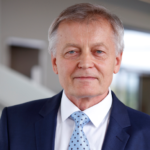 |
Dr. Mikhail Eremets Mikhail Eremets is the leader of the High Pressure Chemistry and Physics Group of the Max Planck Institute for Chemistry in Mainz, Germany. He received his Ph.D. in physics from the Moscow Institute of General Physics Academy of Sciences in 1978 on the work on the electronic structure of Tellurium under pressure. Since then he worked in the high-pressure field in the High Pressure Physics Institute of Academy of Sciences of Russia. After 1996 he worked in Japan, in the Geophysical Laboratory in Washington DC, and currently he works in the Max Planck Institute for Chemistry, Mainz. He studied different phenomena at high pressures. His group discovered 200 K superconductivity in H3S, 250 K superconductivity in LaH10 at high pressures; and semimetallic hydrogen. Presentation topic: “A Path Towards Room Temperature Superconductivity” Presentation day & time: Monday, October 26, 2020; 8:00 a.m. – 9:00 a.m., EDT |
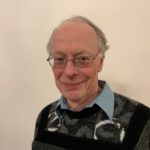 |
Dr. Neil Mitchell After completing his PhD at Cambridge University on the fluid mechanics of turbomachinery, Neil Mitchell entered the nuclear fusion world in 1981 during the completion of the JET tokamak, and participated extensively in the early superconducting strand and conductor development program of the EU in the 1980s, as well as in the design/manufacturing of several small copper-magnet-based magnetic fusion devices. He was involved in the prototype manufacturing and testing of the superconductors that eventually became the main building blocks of the ITER magnets, and participated in the development and first tests of facilities such as Fenix at LLNL and Sultan at PSI. He has filled several positions within the ITER project after joining as one of the founder members in 1988, in particular as the section leader for the ITER conductor in the 1990s with the highly successful construction of the CSMC in Japan, and then after as division head responsible for the magnet procurement. He was responsible for finalizing the magnet design, negotiating the magnet in-kind procurement agreements with the ITER Home Institutes and direct contracts, following and assisting the industrial production qualification and ramp up in multiple suppliers in EU, Japan, Korea, China, US and Russia. The ITER conductor production was completed in 2016 and now with the completion of the first-of-kind magnets and the delivery to the site, he is working as an advisor to the ITER director, deeply involved in problem solving in the interfaces to the ITER on-site construction as the ITER magnets are delivered, contributing to the magnet control and commissioning plans and advising the EU on the design of a next generation fusion reactor. Presentation topic: “Construction Status of ITER and Lessons from the Manufacturing for Application of Superconductivity in Fusion Reactors” Presentation day & time: Tuesday, October 27, 2020; 8:00 a.m. – 9:00 a.m., EDT |
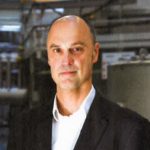 |
Dr. Pierre Vedrine Dr. Pierre Vedrine is presently the head of the Accelerators, Cryogenics and Magnetism Department (DACM) at CEA/Irfu. He received his degree from the University of Paris 6 in 1990 with a thesis on technology of superconducting coils for an AC synchronous generator. He has been with CEA since October 1990. He has worked as scientist and project manager on different superconducting magnet projects for LHC (quadrupole magnets, ATLAS toroid barrel magnet). He was from September 2005 to April 2014 the project manager of the 11.7T-MRI magnet system for the “Iseult/Inumac project”. He has served on a large number of review and conference committees related to superconducting magnets. Presentation topic: “The Quest for Ultra-high Fields in Brain MRI: The Iseult 11.7 T Whole Body Magnet and its Expected Impact on MRI Research” Presentation day & time: Wednesday, October 28, 2020; 8:00 a.m. – 9:00 a.m., EDT |
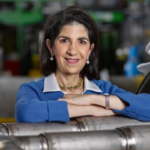 |
Professor Fabiola Gianotti Fabiola Gianotti is the Director-General of CERN, the European laboratory for particle physics. She received a Ph.D. in experimental particle physics from the University of Milano in 1989. Since 1994 she is a research physicist at CERN, and since 2013 an honorary Professor at the University of Edinburgh. She is an associate member of the Italian Academy of Sciences, the National Academy of Sciences of the United States, the French Academy of Sciences, the Royal Society, London, the Royal Irish Academy and the Russian Academy of Sciences. Dr Gianotti has worked on several CERN experiments, covering detector R&D and construction, software development and data analysis. From March 2009 to February 2013 she held the elected position of project leader (”Spokesperson”) of the ATLAS experiment. On 4 July 2012 she presented the ATLAS results on the search for the Higgs boson in a seminar at CERN that saw the formal announcement of the discovery of this special particle by the ATLAS and CMS experiments. She received twelve honorary doctoral degrees from Universities across the world and was a member of several international scientific committees. Dr Gianotti was awarded the honour of “Cavaliere di Gran Croce dell’Ordine al Merito della Repubblica Italiana”. She received the Special Breakthrough Prize in Fundamental Physics, the Enrico Fermi Prize of the Italian Physical Society, the Medal of Honour of the Niels Bohr Institute (Copenhagen), the Wilhelm Exner Medal (Vienna) and the Tate medal of the American Institute of Physics for International Leadership. She was included among the Guardian newspaper’s “Top 100 most inspirational women” in 2011, ranked 5th in Time magazine’s Personality of the Year in 2012, included among the “Top 100 most influential women” by Forbes magazine (USA, 2013 and 2017) and considered among the “Leading Global Thinkers of 2013” by Foreign Policy magazine (USA, 2013). Appointed Director-General of CERN in November 2014 for the period 1 January 2016 to 31 December 2020, in November 2019 she was appointed for a second term, from 1 January 2021 to 31 December 2025. This is the first time in CERN’s history that a Director-General is reappointed for a full second term. Presentation topic (tentative): Particle Physics at Accelerators: Goals and Challenges Presentation day & time: Friday, October 30, 2020; 8:15 a.m. – 9:15 a.m., EDT |
 |
Dr. Joanna Long Joanna Long is the director of the Advanced Magnetic Resonance Imaging and Spectroscopy (AMRIS) Facility at the National High Magnetic Field Laboratory in Gainesville, Florida, and a professor of biochemistry at the University of Florida. She received her Ph.D. in physical chemistry from the Massachusetts Institute of Technology in 1997 for work with Robert Griffin on applying solid state NMR techniques to the study of peptide and lipid structure and dynamics. She then pursued postdoctoral research with Patrick Stayton and Gary Drobny at the University of Washington studying protein structure and dynamics at mineral and polymer interfaces for tissue engineering applications. Dr. Long joined the faculty at the University of Florida in 2002. In 2009, Long became director of the AMRIS Facility, where she continues to pursue her research in developing and applying magnetic resonance techniques for basic biomedical research. Presentation topic: “Why NMR and MRI Need Ultra-high Field Superconducting Magnets: A Biomedical Research Perspective” Presentation day & time: Tuesday, November 3, 2020; 3:45 p.m. – 4:45 p.m., EST |
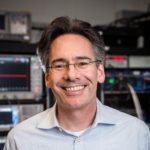 |
Professor William Oliver William D. Oliver is jointly appointed Associate Professor of Electrical Engineering and Computer Science, Professor of the Practice of Physics, and Lincoln Laboratory Fellow, all at the Massachusetts Institute of Technology. He serves as the Director of the Center for Quantum Engineering and as Associate Director of the Research Laboratory of Electronics. Will’s research interests include the materials growth, fabrication, design, and measurement of superconducting qubits, as well as the development of cryogenic packaging and control electronics. Will is a Fellow of the American Physical Society, Senior Member of the IEEE, serves on the US Committee for Superconducting Electronics, and is an IEEE Applied Superconductivity Conference (ASC) Board Member. He received his PhD in Electrical Engineering from the Stanford University in 2003. Presentation topic: “Quantum Engineering of Superconducting Qubits and Quantum Computers” Presentation day & time: Wednesday, November 4, 2020; 3:45 p.m. – 4:45 p.m., EST |
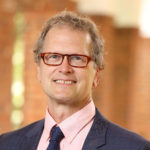 |
Professor Arthur Lichtenberger Arthur Lichtenberger is a Professor in Electrical and Computer Engineering at the University of Virginia and director of the UVA Microfabrication Laboratories and cleanroom facility. His group’s research includes the investigation of superconducting and semiconducting materials and microfabrication technologies for new terahertz devices, circuits, and metrology. Together with his collaborators at UVA, he has built an internationally recognized research program in superconducting materials, devices and circuits for ultrasensitive single pixel and array terahertz detectors. He has collaborated with numerous astronomical groups including the National Radio Astronomy Observatory and the Hertzberg Institute of Astrophysics for Band6 and Band3 respectively of the Atacama Large Millimeter/submillimeter Array (ALMA). To date, he has been Principal or Co-Investigator on over 40 million dollars of funding and an author on more than 150 papers. He was elected to the board of the Applied Superconductivity Conference (ASC) in 2012 and will be president of the Board and chair the Honolulu ASC conference in 2022. He is a founding member, president, and COO of Dominion MicroProbes Inc. Presentation topic: “A Superconducting Journey to a Black Hole and Beyond” Presentation day & time: Friday, November 6, 2020; 3:45 p.m. – 4:45 p.m., EST |